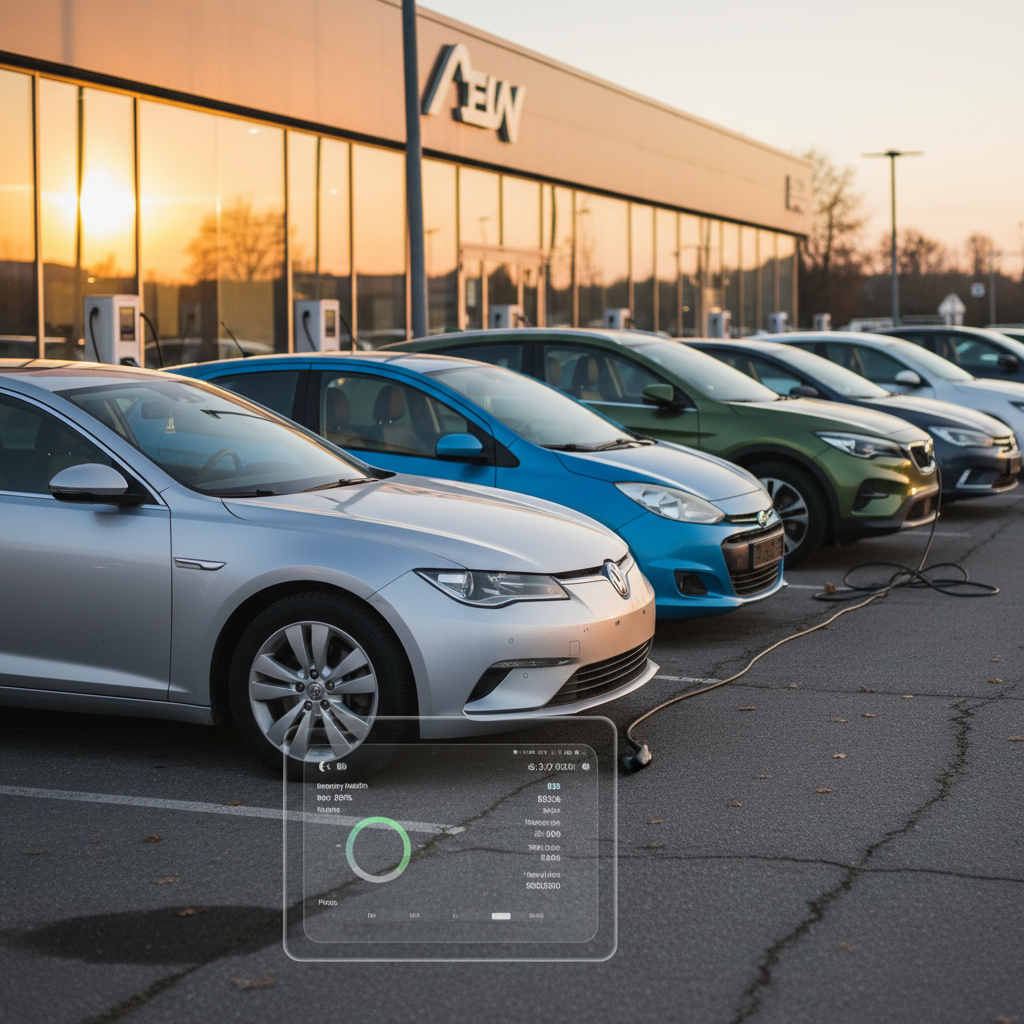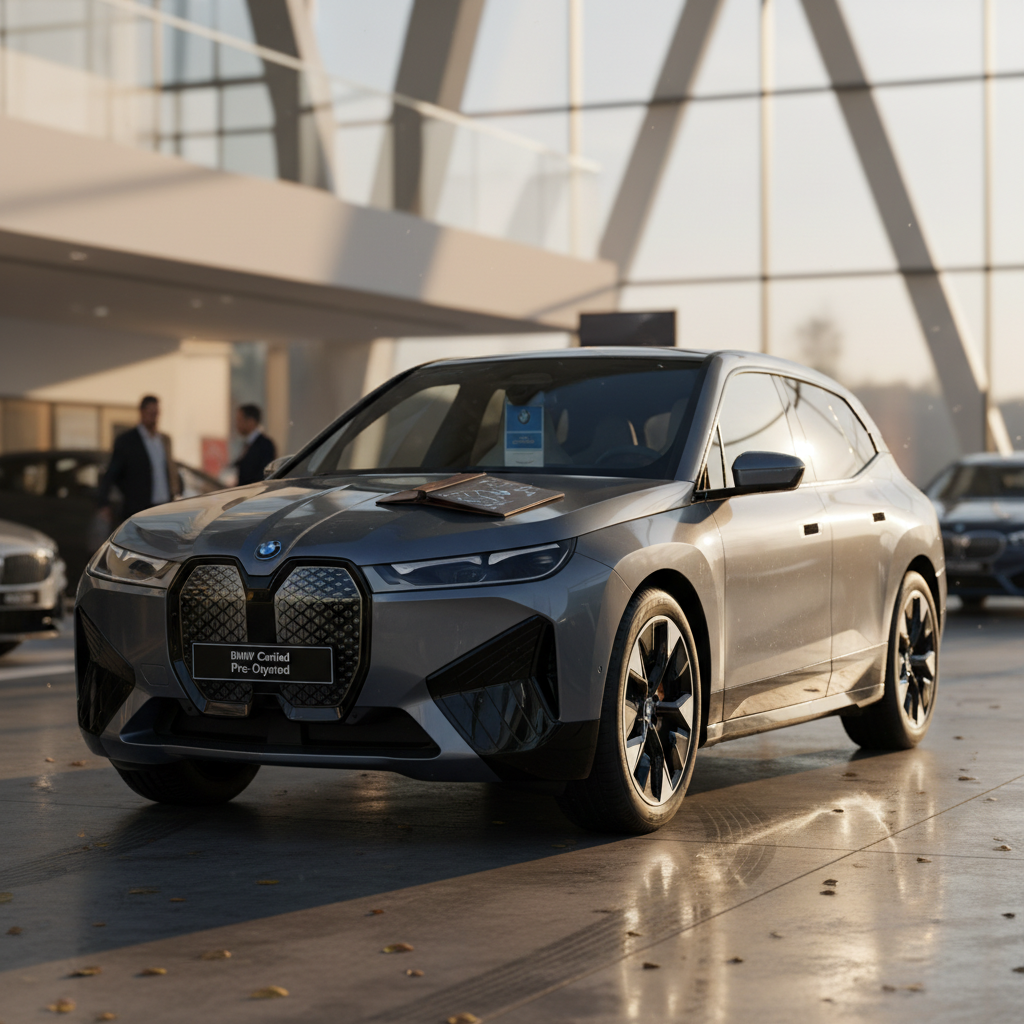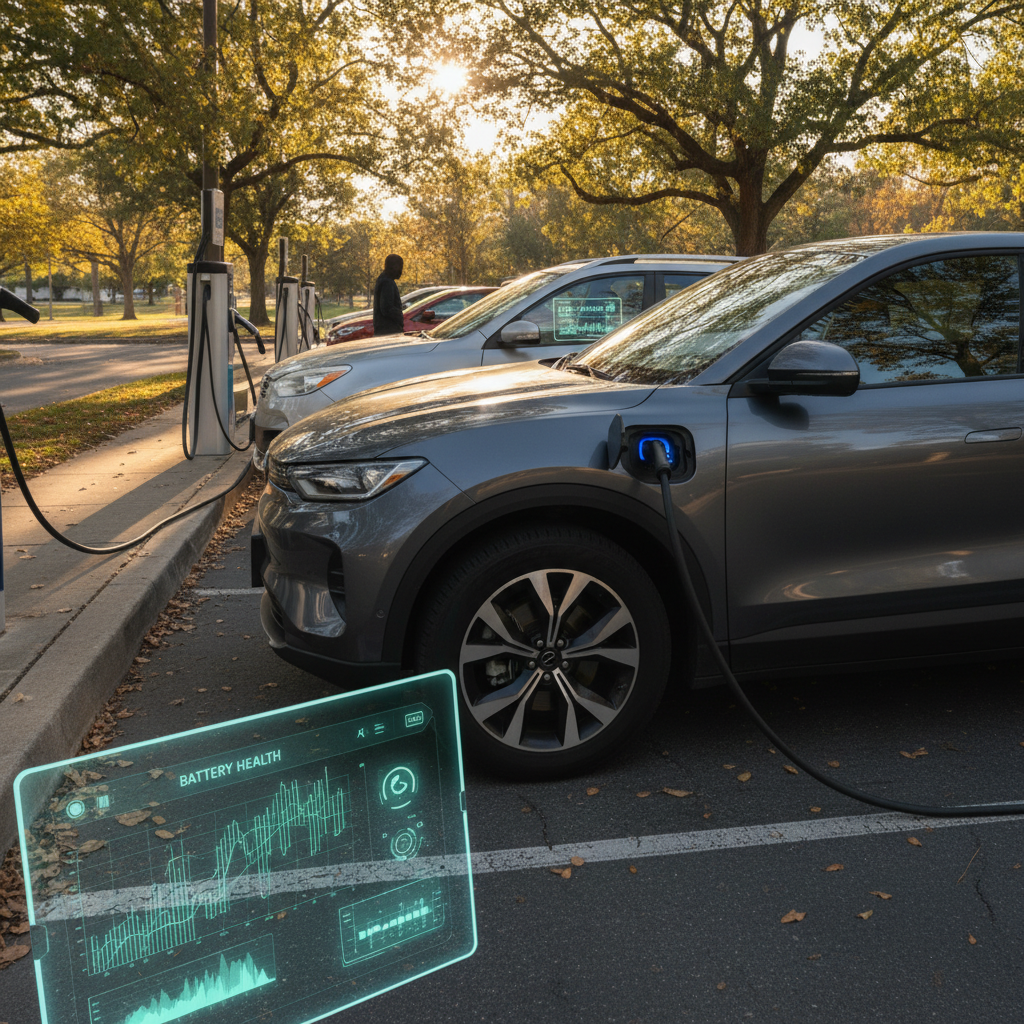If you’re hunting for the best used cars with great MPG, you’re really asking one question: how do I drive as far as possible on every dollar I spend? In 2025, that means looking beyond just the window-sticker MPG and thinking about hybrids, thrifty gas cars, and, increasingly, used electric vehicles that skip gas entirely.
MPG isn’t the whole story anymore

Why MPG Still Matters in 2025
Even as EVs take more of the spotlight, most U.S. drivers still live with gasoline in the budget. Fuel prices bounce around, but they rarely stay low for long. Meanwhile, federal data show new‑vehicle fuel economy has climbed to record highs, which makes older gas‑guzzlers feel more outdated, and more expensive to run, every year.
Fuel-economy context for used buyers
So yes, chasing better MPG still makes sense, especially if you’re upgrading from an older SUV or pickup in the teens or low‑20s. But above roughly 35–40 mpg, every extra mile per gallon saves you less than you might think. That’s where hybrids and used EVs really start to change the math.
MPG basics: what counts as “good” today?
Rough MPG benchmarks for used cars
- Under 25 mpg combined: Poor by 2025 standards unless it’s a truck or performance car.
- 25–30 mpg combined: Average compact or midsize used car.
- 30–35 mpg combined: Solid economy car territory.
- 35–40 mpg combined: Very good for a gas‑only vehicle.
- 40–50+ mpg combined: Hybrid territory; excellent for commuters.
Other efficiency numbers to pay attention to
- City vs. highway mpg: Hybrids shine in stop‑and‑go; some gas cars do better on the highway.
- Tank size and range: A 50‑mpg car with a tiny tank may stop more often than a 35‑mpg sedan with a big one.
- Real‑world reviews: Owner reports often tell you whether a car actually hits its EPA numbers.
Don’t obsess over 2–3 mpg
Best used hybrids for great MPG
If you want the best used cars with great MPG and you’re sticking with gasoline, you should start with hybrids. Many mainstream models deliver 45–55 mpg combined in recent model years, and their technology has matured to the point where reliability is more about specific models than about being a hybrid at all.
Standout used hybrids to target
These models routinely deliver 40+ mpg combined and strong reliability when maintained properly.
Toyota Prius (2017–2022)
The classic high‑MPG hero. Late‑2010s and early‑2020s Prius models can deliver 50+ mpg combined in real‑world use, with hatchback practicality and a massive owner community.
Look for: Complete maintenance records, rust‑free underbody in cold‑weather states, and a healthy hybrid battery.
Hyundai Ioniq Hybrid (2017–2022)
Often overlooked, but one of the most efficient hybrids ever sold, with EPA ratings in the mid‑50s mpg for many trims.
Best for: Highway commuters who want Prius‑level efficiency but a more conventional driving feel.
Honda Accord Hybrid (2017–2020)
A midsize sedan that still returns roughly 47–49 mpg combined. Roomy, comfortable, and great as a long‑distance family car.
Strengths: Adult‑sized rear seat, big trunk, typically lower revs at highway speeds.
Toyota Camry Hybrid (2018–2022)
Think of this as the more traditional sibling to the Prius: familiar design, large interior, and efficiency commonly in the high‑40s to low‑50s mpg.
Ideal for: Drivers who want Toyota reliability and high MPG without the hatchback look.
Toyota RAV4 Hybrid (2019–2023)
Compact SUV with real cargo space and near‑40 mpg combined depending on year and trim.
Why it works: It delivers SUV ride height and all‑wheel drive while using fuel like an economy car.
Kia Niro Hybrid (2018–2023)
A small crossover that often returns around 49–53 mpg in many configurations.
Good match for: City dwellers who want wagon practicality with hybrid efficiency.
Used hybrid battery realities
Best used gas cars with good MPG
Not ready for a hybrid or EV? You can still find used gas‑only cars that deliver excellent mileage. The key is to focus on small, relatively modern compacts with efficient four‑cylinder engines and automatic or CVT transmissions tuned for economy.
High‑MPG used gas cars (non‑hybrid) to consider
Approximate EPA combined figures; always verify exact numbers for the model year, engine, and transmission you’re considering.
| Model | Typical used years to target | Approx. combined MPG | Why it’s a smart buy |
|---|---|---|---|
| Honda Civic | 2016–2022 | ~32–36 mpg | Excellent reliability record, strong resale value, and efficient engines even in base trims. |
| Hyundai Elantra | 2018–2022 | ~32–36 mpg | Often priced below Japanese rivals with similar fuel economy; newer cars have long warranties when transferred. |
| Toyota Corolla | 2018–2022 | ~33–35 mpg | Default choice for many commuters; conservative but proven, with reasonable operating costs. |
| Kia Forte | 2019–2022 | ~31–34 mpg | Usually cheaper than a comparable Civic or Corolla; good value if you find a clean, well‑maintained example. |
| Nissan Sentra | 2020–2023 | ~32–34 mpg | Recent redesign improved refinement and mileage; good pick if priced right. |
| Mitsubishi Mirage | 2017–2020 | ~37–39 mpg | Slow and basic, but extremely efficient. Good for city‑only driving on a tight budget. |
These gas‑only cars consistently show up near the top of fuel‑economy lists while remaining affordable on the used market.
Why non‑hybrid can still make sense
High‑MPG used SUVs and crossovers
SUV shoppers often assume they’re doomed to poor fuel economy, but newer crossovers blur the line. If you want space plus great MPG, look first at hybrid SUVs, then at the most efficient compact crossovers with small turbo engines.
- Toyota RAV4 Hybrid (2019+): Around 38–40 mpg combined, with family‑friendly space and strong resale value.
- Kia Niro Hybrid (2018+): A tall hatchback more than a traditional SUV, but its 45–50+ mpg makes it a standout.
- Honda CR‑V Hybrid (2020+): Typically mid‑30s mpg combined with Honda practicality.
- Nissan Rogue (recent years): Among gas‑only compact SUVs, the Rogue often tops the charts at roughly 33 mpg combined in front‑wheel‑drive form.
- Subcompact crossovers: Models like the Nissan Kicks also flirt with low‑30s mpg while offering extra ride height.
AWD vs. FWD: MPG penalty to watch
When a used EV actually beats any MPG car
If you’re focused on fuel savings alone, a used EV will almost always out‑“MPG” any gas or hybrid car once you convert electricity into miles per gallon equivalent. The question isn’t whether EVs are efficient, they are, it’s whether one fits your driving pattern and charging situation.
Where a used EV wins big
- Short daily commute: If you drive 40–60 miles a day and can charge at home or work, you may barely notice fuel costs.
- City driving: Stop‑and‑go traffic is where EVs shine, thanks to regenerative braking and no idling.
- Maintenance: Fewer moving parts means no oil changes, timing belts, or exhaust issues.
- Price drops: As new EV incentives shift, many 3–6‑year‑old EVs have become surprisingly affordable on the used market.
Where a high‑MPG hybrid may be safer
- Frequent road trips without fast charging: If you regularly drive cross‑country and public chargers are sparse, a hybrid’s gas tank offers more flexibility.
- Limited or expensive home charging: Renters without dedicated parking may struggle to plug in often enough.
- Extreme cold climates: EV range drops in winter; a hybrid might be easier if you live in a region with long, harsh winters.
Use EV‑style math on MPG cars
How to shop a high‑MPG used car smartly
High‑MPG used‑car shopping checklist
1. Start with your real driving pattern
Write down how many miles you drive on a typical weekday, how often you take long trips, and whether you can charge at home. This will tell you whether a gas car, hybrid, or EV gives you the best return.
2. Compare total monthly cost, not just MPG
Include payment, insurance, fuel or electricity, and routine maintenance. A slightly more expensive car with lower fuel and maintenance costs can still be the cheaper option month‑to‑month.
3. Look for documented maintenance
For high‑MPG cars, especially hybrids, consistent maintenance is crucial. Oil changes, coolant services, and software updates all help the powertrain stay efficient.
4. Avoid heavily modified or abused cars
Aftermarket tunes, oversized wheels, or cheap tires can destroy fuel economy. Prioritize stock or lightly optioned vehicles with service records.
5. Get a pre‑purchase inspection
Ask a trusted mechanic, or an EV/hybrid specialist, to check for engine misfires, worn tires, dragging brakes, or hybrid battery issues that can drag down MPG.
6. Test drive the way you actually drive
Don’t just loop the block. Take the car on your normal mix of streets and highway, and reset the trip computer to see real‑time fuel economy.
Beware unrealistic MPG claims
Finance and total cost considerations
You might find two cars with similar fuel economy but very different monthly costs. That’s where smart financing and a realistic view of depreciation come in, especially if you’re cross‑shopping hybrids and used EVs against gas cars.
How financing changes the MPG math
- Interest rate vs. fuel savings: A lower‑interest loan on a slightly more expensive hybrid or EV can pay for itself if you drive enough miles each year.
- Loan term length: Stretching to 72 or 84 months might lower the payment but can put you upside‑down if fuel prices spike or your needs change.
- Down payment: More money down reduces your monthly burn rate and makes future trade‑ins less painful.
Why many MPG shoppers now look at used EVs
- Predictable energy costs: You know what your electricity rate is, and you can often schedule charging when it’s cheapest.
- Lower maintenance: No oil changes, spark plugs, or transmission fluid services.
- Depreciation already “baked in”: Early‑generation EVs have already taken their biggest hit; buying used lets you capture that discount.
How Recharged can help
FAQ: Best used cars with great MPG
Frequently asked questions
Bottom line: should you chase MPG or go EV?
If your goal is to find the best used cars with great MPG, you have more options than ever. Late‑model compacts and hybrids now deliver fuel economy numbers that would’ve seemed impossible a decade ago, and a smartly chosen SUV can sip fuel like an old compact sedan. But once you do the math on fuel, maintenance, and financing, you may find that a used EV, especially one with verified battery health, beats even the thriftiest gas car in real cost per mile.
The right choice comes down to how you drive, where you live, and how long you plan to keep the car. Whether you end up in a 50‑mpg hybrid, a solid 35‑mpg gas sedan, or a used EV with effectively triple‑digit MPGe, focus on a clean history, honest numbers, and a total monthly cost you’re comfortable with. And if you’re EV‑curious, Recharged can help you compare used EV options, complete with battery‑health reports and financing, to make sure you’re not leaving long‑term savings on the table.



